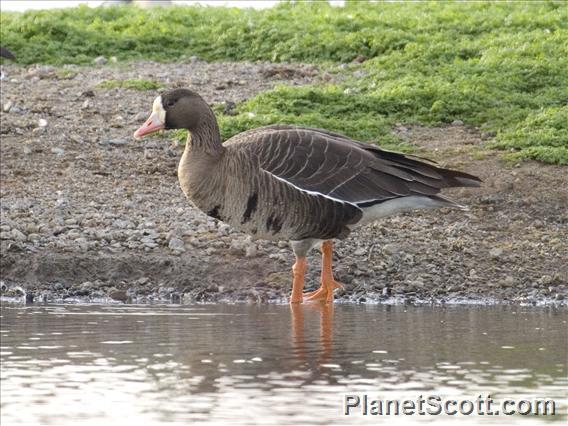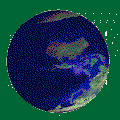Greater White-fronted Goose (Anser albifrons)


About Greater White-fronted Goose (Anser albifrons)
- Kingdom: Animals
- Phylum: Chordates
- Class: Birds
- Order: Anseriformes
- Family: Swans, Geese, and Ducks
The greater white-fronted goose is a species of goose, closely related to the smaller lesser white-fronted goose. The greater white-fronted goose is migratory, breeding in northern Canada, Alaska, Greenland and Russia, and winters farther south in North America, Europe and Asia. It is named for the patch of white feathers bordering the base of its bill: albifrons comes from the Latin albus "white" and frons "forehead". In the United Kingdom and Ireland, it has been known as the white-fronted goose; in North America it is known as the greater white-fronted goose, and this name is also increasingly adopted internationally. Even more distinctive are the salt-and-pepper markings on the breast of adult birds, which is why the goose is colloquially called the "specklebelly" in North America.
Source: Wikipedia
Trips
No trip reports available.Visits
-
2003-12-15
Sacramento National Wildlife Refuge, United States of AmericaThere were many thousands of these.× -
2008-12-06
Colusa National Wildlife Refuge, United States of America× -
2010-01-03
Sacramento National Wildlife Refuge, United States of America× -
2012-12-02
Lake Merced , United States of America× -
2014-04-05
Cosumnes River Preserve, United States of America× -
2015-01-20
Arrowhead Marsh, United States of America× -
×
-
×








